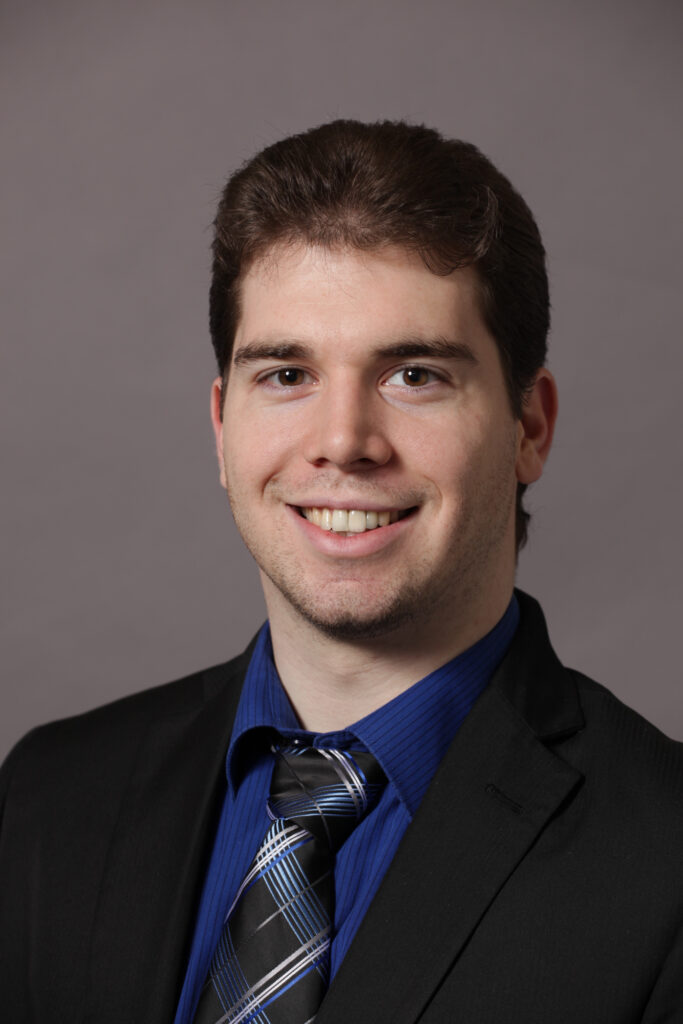- Graduate Stories
Follow the inspiring journeys of INRS graduates: memories, experiences and opportunities punctuate these forward-looking interviews. A series signed by the INRS Foundation.

Antony Bertrand-Grenier’s academic career is remarkable. From the outset, his curiosity led him to explore a wide range of science-related subjects. This passion forms the common thread running through his academic and professional achievements: a bachelor’s degree in engineering physics from Université Laval, a master’s degree in energy and material sciences (2012) at the Institut national de la recherche scientifique (INRS) under the supervision of Professor François Légaré, a doctorate in medical physics from Université de Montréal, and a propaedeutic degree in philosophy from Université du Québec à Trois-Rivières (UQTR). He is currently pursuing a second doctorate at UQTR in epistemology, thereby deepening his skills in critical thinking.
Antony feels that university science studies lack at times, a solid epistemological foundation due to the complexity of the phenomena studied. He aspires to understand the scientific method in its entirety: how it was developed and how it can be improved. Even during his studies in engineering physics, he felt a need to answer these questions and dig deeper. As soon as he became aware of the crucial role of science and the importance of cultivating critical thinking, Antony embarked on a quest to explore how we acquire knowledge and the importance of questioning the methods used to do so. “It was essential for me to ask myself these questions,” he admits. This passion to understand and share his curiosity led him to publish several articles on the subject, and to speak at conferences, in interviews, on podcasts and on science shows, including “Science et foi” co-hosted by Pénélope McQuade and Alain Crevier in February 2024. He will also be publishing a book on critical thinking, L’art de la pensée critique, with Cursus Universitaire this year.
When asked why he chose to study at INRS, Antony explains that he had several reasons. First, he explored numerous master’s projects at several Canadian and American universities in the field of imaging before making his choice on INRS. Professor François Légaré’s project in bio photonics, focusing on laser imaging, particularly caught his attention.

The prestige of INRS in terms of research excellence, combined with the fact that it welcomes exclusively graduate students, which were convincing arguments for choosing this establishment. The prospect of joining a community dedicated to research excited me enormously
Antony Bertrand-Grenier, M. Sc. in energy and material sciences (2012), medical physicist at CIUSSS de la Mauricie-et-du-Centre-du-Québec, author, associate professor, and doctoral student in epistemology at Université du Québec à Trois-Rivières (UQTR)
Antony underlines the positive influence of his thesis supervisor, François Légaré, whom he describes as exceptional, on his studies at INRS. He particularly appreciated his constant support for his students, and his encouragement of collaboration and knowledge sharing through participation in conferences, symposia, and other events. He emphasizes the freedom of research and flexible timetable granted by his director, and says he loved the working atmosphere in the laboratory “where there was an atmosphere conducive to the exchange of ideas within a close-knit team”. Antony also remembers the high level of autonomy he enjoyed during his studies at INRS. He emphasizes that this autonomy is an essential feature of research. “As a student, you are fully responsible for your project, your work and your academic career. Of course, you can count on the support of your colleagues and professors, but it’s up to you to bring your project to fruition. This framework encourages the development of autonomy and responsibility, crucial skills in the world of research and beyond.”
In conclusion, Antony offers this advice: “When choosing your research project, it’s vital to select it according to your personal interests. Choose a subject that you’re passionate about, as you’ll be devoting several years of your life to it. Take the time to explore different fields that interest you before making your final choice. What’s more, make sure you’re part of a dynamic, collaborative research team. Don’t hesitate to talk to the professors who could become your thesis supervisor, and to students already working in the laboratory you’re interested in. This will give you a concrete idea of the atmosphere and work dynamics within the team. Finally, once you’ve made your decision, commit yourself fully to your project and do whatever it takes to succeed.”
[Interviewed in April 2024.]
Discover the INRS Foundation and its activities. See website
